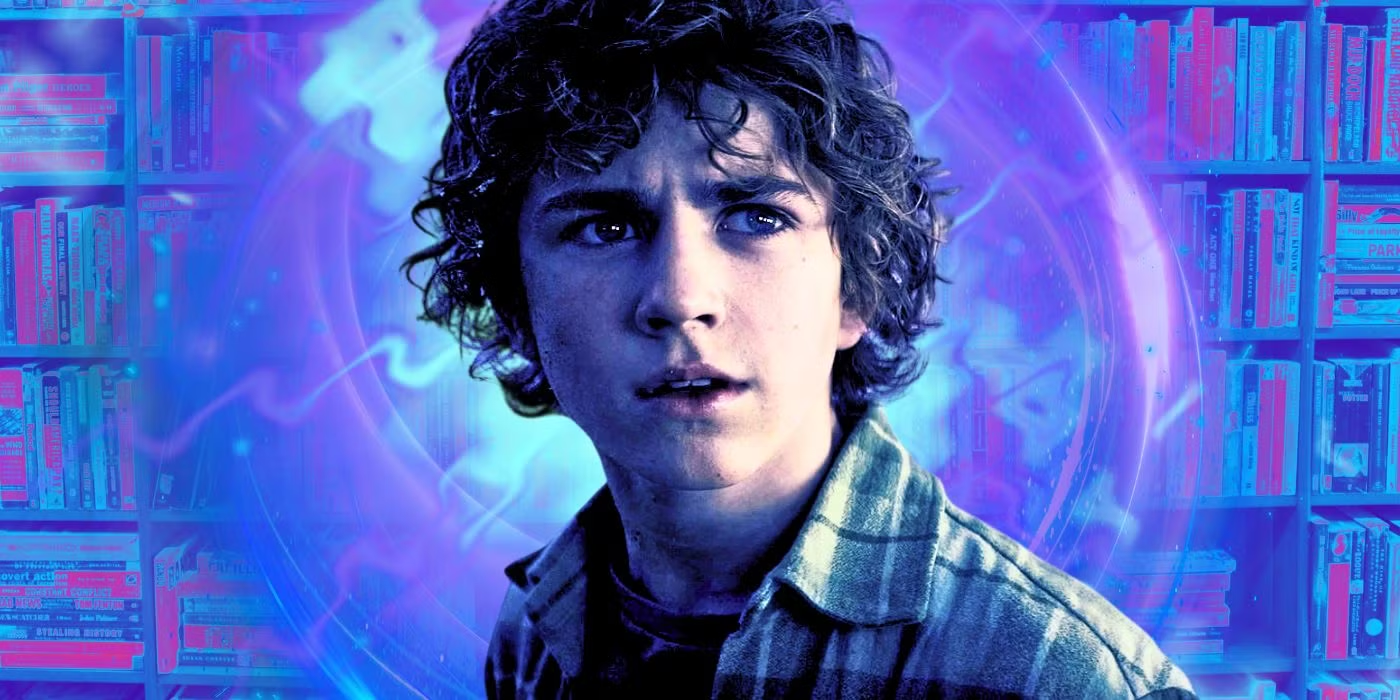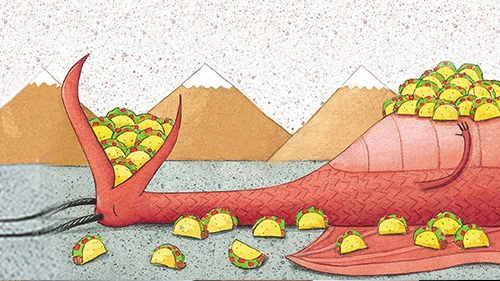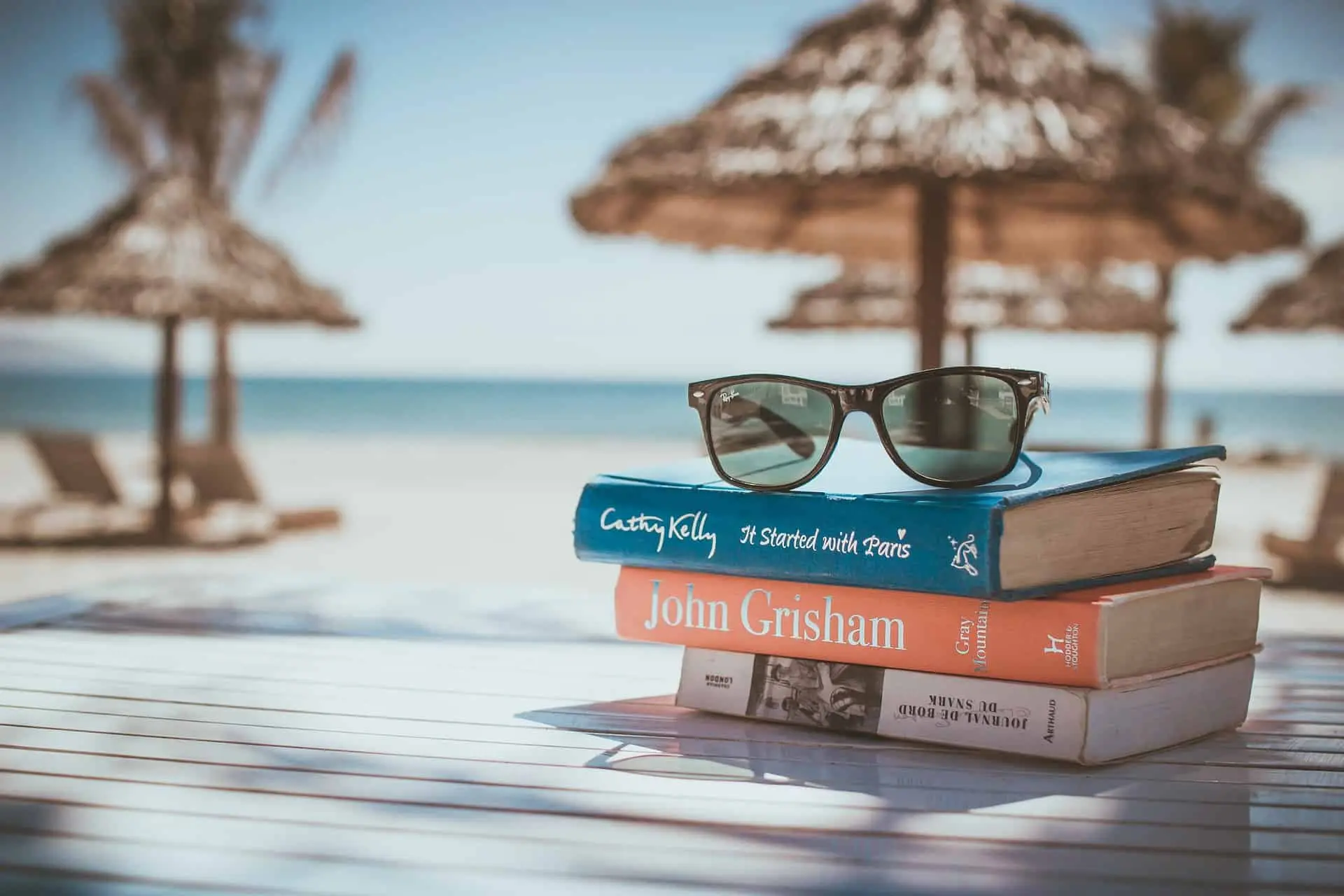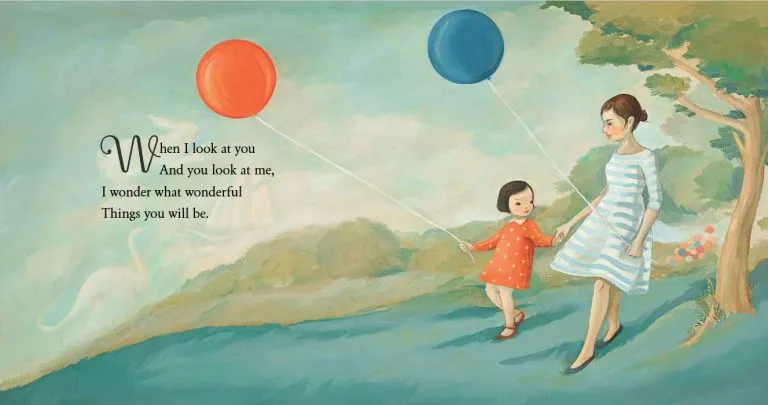Michael Cunningham Thinks Most People Misunderstand Lolita

Granted, says the author of books including “The Hours” and “A Wild Swan,” it’s “about a sociopathic predatory pedophilic rapist.” But it’s also “a messed-up love story right out of ‘Beauty and the Beast.’”
What books are on your nightstand?
I have to say that I’m not only answering these questions at what is not yet the height of the Covid-19 pandemic, but that I fear they’ll be read before the virus is in any way under control.
Living as I do, as we all do, in relative isolation, I’ve got a lot of books on my nightstand. They include:
“Ducks, Newburyport,” by Lucy Ellmann, “This Is Pleasure,” by Mary Gaitskill, “Lot,” by Bryan Washington, and James Salter’s “Light Years,” which I read every few years. That’s the fiction. Poetry: Robert Hass’s “Summer Snow,” Marie Howe’s “Magdalene,” Sharon Olds’s “Arias.” There’s also Peter Schjeldahl’s collection of art reviews, “Hot, Cold, Heavy, Light,” and, for the smallish cohort of my fellow geeks: Sam Wasson’s “The Big Goodbye,” a 400-page tome on the making of the movie “Chinatown.”
What’s the last great book you read?
George Saunders’s “Lincoln in the Bardo.”
Are there any classic novels that you only recently read for the first time?
“The Magic Mountain,” which I’d come to think of as a book I’d spend my entire life intending to read. I was alone, last May and June, in a fairly remote place in Portugal, and I realized that if ever there’d be a time and place, this was the time and place.
“The Magic Mountain” is, of course, fabulous and impossible and, well, enormous, in every sense of the world. Ideally, it wants focus and isolation, a dearth of interruptions … not unlike Hans Castorp’s own years in the sanatorium on the mountain.
I adored it on some days and hated it on others. I threw it across the room, twice. It was, among its many aspects and effects, a reminder of a kind of relationship to a book that’s difficult to maintain, now. How many of us, in 2020, can devote two months to reading one book every single night, all the more so when it’s a book that can be transcendent and can be exasperating? I’ve been thinking, ever since, about how the relationship between writers and readers has changed since Thomas Mann came and went.
Describe your ideal reading experience (when, where, what, how).
I stay up later than my husband. Once he’s gone to bed I drift off to the day bed in the living room where, for an hour or two, or more, I recline in a single pool of lamplight, in an otherwise dark apartment, reading. It’s silent, or as silent as Brooklyn ever gets. I’m off duty for the night. I almost literally slip through the time/space continuum, and come as close as possible to leaving myself and entering the book.
What’s your favorite book no one else has heard of?
There are so many. … OK, Glenway Westcott’s “The Pilgrim Hawk.” It would be unconscionable not to mention the New York Review of Books Classics series, which is possibly the richest source in the entire world of great books you never heard of.
What book should everybody read before the age of 21?
The fact that I have no idea how to answer this question probably speaks to how far past the age of 21 I am. A book that everybody under 21 should read? A book that a Jamaican boy at a prep school and a Latina girl in Indianapolis and a young white transwoman from a rich family in New Hampshire should all read? You’ve got me there. I suspect that as we get older, we, some of us, start to lose our grip on the very notion that there’s anything that everyone should read.
Ironically enough, I’m sure I could have answered this question without hesitation when I myself was 21.
What book should nobody read until the age of 40?
I honestly can’t think of a book nobody should read until the age of 40. There’s this, though. In theory, we should, every 10 years or so, reread every book that’s been important to us, because at (roughly) 10-year intervals we are no longer the person who read the book 10 years earlier. The “House of Mirth” you read, for instance, when you’re 20 is not the “House of Mirth” you’ll read at 40.
Which writers — novelists, playwrights, critics, journalists, poets — working today do you admire most?
Hm. The list is so long, and yet I’ll still almost surely leave out some essential names. OK, here are 26, one for each letter of the alphabet (with essential names missing): Donald Antrim, Sarah Shun-Lien Bynum, Susan Choi, Edwidge Danticat, Deborah Eisenberg, Carolyn Forché, Adam Gopnik, Marie Howe, Kazuo Ishiguro, Miranda July, R .O. Kwon, Robin Coste Lewis, Colum McCann, Maggie Nelson, Julie Otsuka, Francine Prose, Peter Quinn, Claudia Rankine, Peter Schjeldahl, Justin Torres, David Unger, Ocean Vuong, Bryan Washington, Xu Xi, Hanya Yanagihara, C Pam Zhang.
What do you read when you’re working on a book? And what kind of reading do you avoid while writing?
I read whatever I feel inclined to read while I’m working. For one thing I’m more or less always working, so there’s not really an answer to a question like, “What do you read (or avoid reading) when you’re writing?” It’s a little like asking a fish, “So, what do you do when you’re not in the water?”
I don’t avoid reading anything while I’m working on a book. I sometimes hear other writers talk about how they shy away from certain significant books because they don’t want to be overly influenced, and all I can ever think to say is, “You know, if you’re worried about turning into Toni Morrison or Gabriel García Márquez, I’d put that thought right out of your mind.”
Do you count any books as guilty pleasures?
I have never felt guilty about reading any book. Full disclosure: My guilty pleasure is magazines, the more trivial the better. And (fuller disclosure) I can only read them on airplanes, when I feel sufficiently outside of time that guilt doesn’t apply because I’m not wasting time because for the duration of the flight there is no time.
Has a book ever brought you closer to another person, or come between you?
This isn’t exactly what you mean, but about 20 years after I’d met my husband I was looking through an old paperback copy of “Anna Karenina” and, on the title page, was his then-phone-number, which I’d written there on the day we met.
What’s your favorite book to assign to and discuss with your students at Yale?
We read short stories in my Yale class, and I wouldn’t assign a story that isn’t one of my favorites. I make changes to the syllabus every year, but there are some stories that remain year after year, because they consistently inspire fervent and fertile discussions. Among the perennials are “Lightning,” by Donald Barthelme, “Birthmates,” by Gish Jen, “Girl,” by Jamaica Kincaid, “The Ones Who Walk Away From Omelas,” by Ursula K. Le Guin, and “Terrific Mother,” by Lorrie Moore. Just to name a few.
Do you think any canonical books are widely misunderstood?
“Lolita.” It’s widely read as a book about a sociopathic predatory pedophilic rapist. It is, in fact, a book about a sociopathic predatory pedophilic rapist.
But people tend to miss (spoiler alert) Humbert’s final encounter with Lolita, when she’s no longer a nymphet, when she’s become an ordinary housewife; an encounter during which he declares his love for her, for her, not for the child she was, and offers — genuinely, it seems — to take her away from her sorrowful circumstances, and do his best to love her forever.
Which offer implies that he feels he has touched, or been touched by, her essence or her soul or whatever we want to call it.
Which offer she, understandably, refuses.
We do not forgive Humbert because he recants after it’s too late. But neither do we refer, often, to “Lolita” as a messed-up love story right out of “Beauty and the Beast.”
What’s the most interesting thing you learned from a book recently?
Rebecca Makkai’s “The Great Believers” offers, as a bonus of sorts, an underlying sub-story about an art dealer’s attempts to determine whether a body of undiscovered drawings that appear to be the work of a great, deceased artist are genuine, or forgeries. Along with the intricate mechanics of detection, we receive an implied meditation on the fact that the same drawings, if they’re the work of a famous artist, are worth a fortune but, if they’re not, have no value at all. Which is, of course, fascinating in what it says about how we perceive, and receive, “great” art.
I love it when a novel includes, along with its larger themes, actual information about the actual world, the way, for instance, that Philip Roth, in “American Pastoral,” managed to convey the surprisingly absorbing particulars of the glove-making business.
Which subjects do you wish more authors would write about?
Sex and politics.
What moves you most in a book?
It depends on the book in question.
Do you prefer books that reach you emotionally, or intellectually?
I very much hope for both. And I hope we’re not, as readers, compelled to choose one or the other.
Which genres do you especially enjoy reading? And which do you avoid?
Speculative fiction, which is, often, the last bastion of the novel of ideas. I don’t really avoid any other genres but frankly I don’t read many of them, either.
And really, if you’re not going to confess to The Sunday New York Times, who are you going to confess to?
I’m a snob. I don’t read mysteries, or romances, or even wicked, wised-up social satires. I don’t read the thinly fictionalized tell-alls of exploited au pairs, or the thinly veiled autobiographies of the rich but derailed. They seem, always, when I try to read them, to be ineluctably false, even (ironically enough) if the characters and events are based on actual characters and events.
How do you organize your books?
Alphabetically, with different sections for fiction, nonfiction, poetry, and etc. I’m not particularly eccentric in my approach to organizing my books.
What book might people be surprised to find on your shelves?
I don’t really imagine that anyone who knows me would be surprised by anything on my shelves.
This is a bit of a tangent, but recently Kenny and I conducted a second book purge, after the first purge left us with still more books than we could accommodate. We had been ruthless. And yet, it seemed we hadn’t been ruthless enough.
In the second purge the question was not simply, Which books do we most love, but which books do we need to have on the premises, for what I’ll call their talismanic powers.
It was revelatory. I was surprised by which books I needed to have in perpetuity and which books I could send on to their next lives at the Center for Fiction…
Which books, if you will, felt almost literally fleshly; which books had, in theory at least, taken on corporeal dimensions? Which books would feel palpably absent when you came home at night, even if you didn’t so much as glance at them?
How have your reading tastes changed?
I suppose I have less patience than I once did with massive tomes that could be approximately half as long. As I get older I feel that I have less time for prolonged demonstrations of a writer’s brilliance. I don’t mean massive tomes in general, some 1,000-page books need to be exactly that long; I mean discursive, show-offy books, no matter how intermittently brilliant they may be. I just haven’t got the time.
I should probably add that I’m fully aware of the contradiction between this answer and my riff about “The Magic Mountain.” We as a species are full of contradictions. That’s why they write novels about us.
You’re organizing a literary dinner party. Which three writers, dead or alive, do you invite?
Marcel Proust, Gertrude Stein and F. Scott Fitzgerald. Imagine the arguments they’d get into.
What do you plan to read next?
Kenny and I have just started reading “Sense and Sensibility” aloud to each other at night. It’s hard to imagine a better book for these extremely dark times. As a matter of fact, it’s about time to start tonight’s reading.




